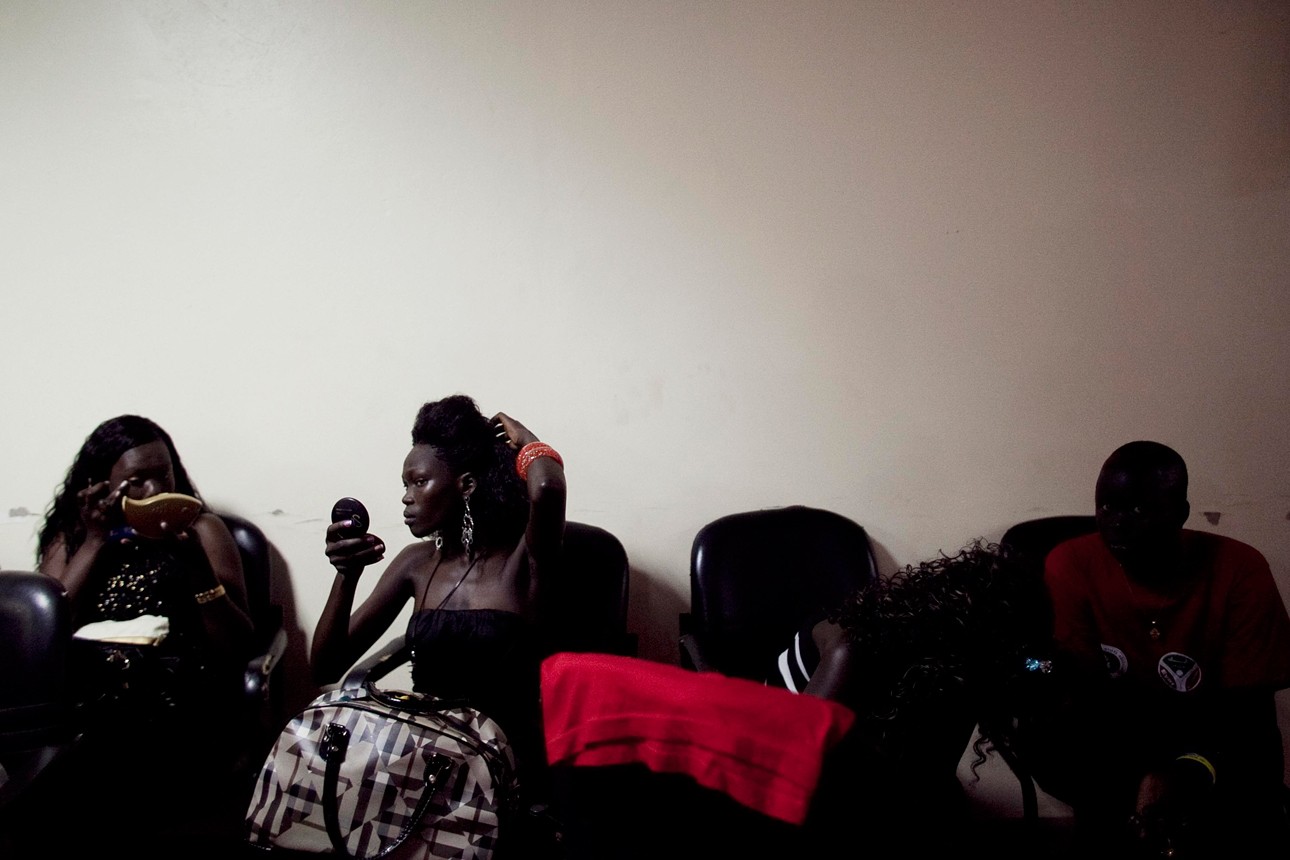
Sudanian Beauty: Women’s Contest in Pete Muller’s Series

From 2009-2012 I lived and worked in southern Sudan. I was there to observe and document the region’s transition to independence. In July 2011, as a result of the civil war that claimed the lives of over 2 million people, the Republic of South Sudan was created. It is a rather unusual occurrence in the 21st century, that the borders of a state were reconfigured to better reflect the divergent national identities of communities. I’ve long been interested in questions of national identity in postcolonial states and Sudan was a place where divergent identities actually tore the state asunder.
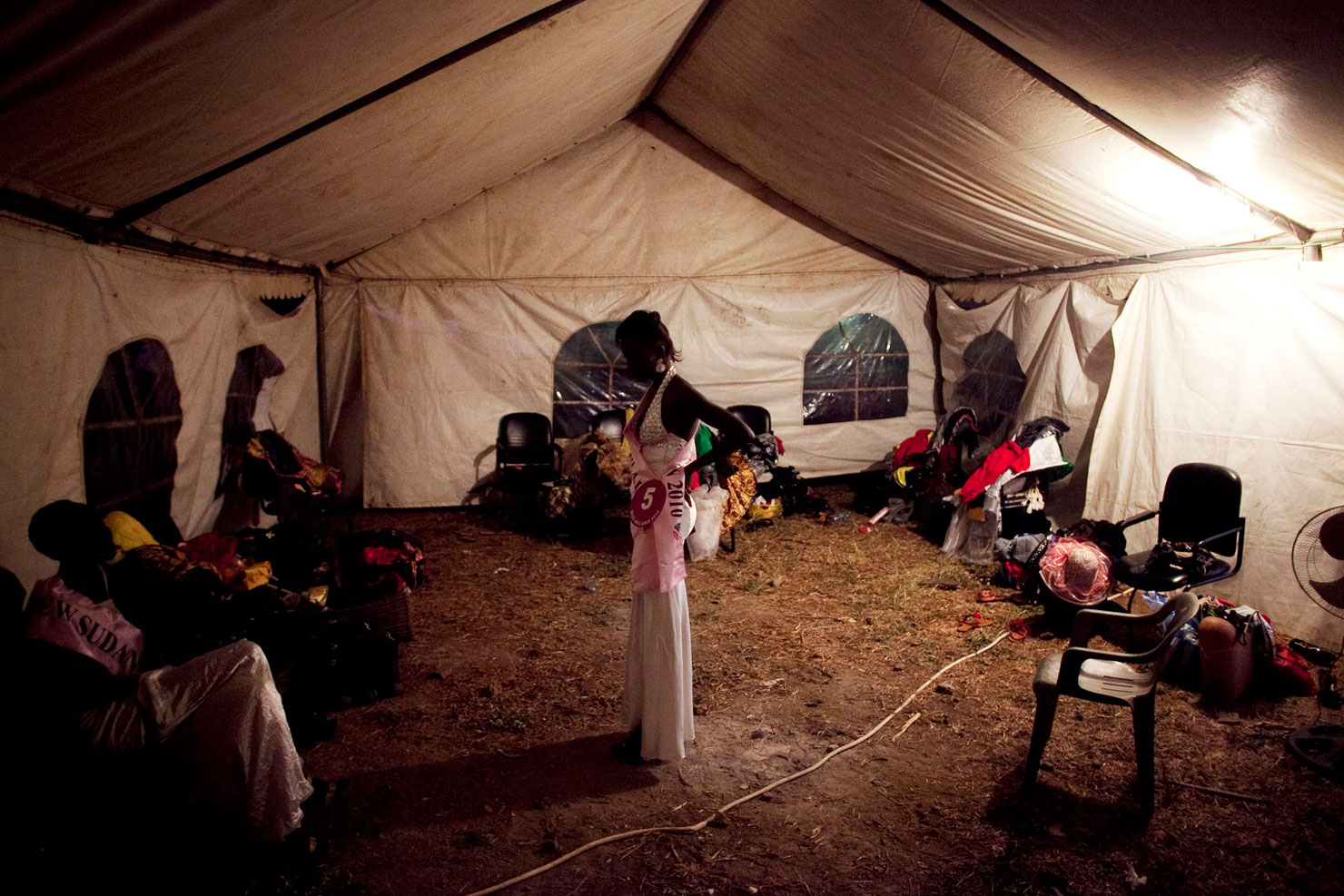
The conflict landscape in South Sudan is incredibly complex, there was no one “conflict zone” per se, there were different conflicts happening in different places at different times. There were terrible conflicts between various pastoral communities over cattle. Following a very problematic election in 2010, there were wars between political dissidents and the interim government. There were fights along the border between the northern and southern forces. To me, these near-persistent conflicts were harbingers of the eventual implosion. One year after I left, we saw the outbreak of horrific civil war between the two largest and most powerful southern factions.
{“img”:”/wp-content/uploads/2015/10/Muller_02.jpg”}
{“img”:”/wp-content/uploads/2015/10/Muller_03.jpg”}
This competition is known as Miss Malaika, or Miss New Sudan, and it took place each December in the capital city of Juba. It was a very festive event during which rich and poor alike came together to cheer on the contestants. What interested me most about the Miss Malaika, though, was that it was one of a very few social events that centered around the building of national identity. Outside of the cities, a vast matrix of tribal communities remains relatively disconnected from one another. These divisions were exploited during the war and thus they grew more rancorous and entrenched.
The lack of road networks throughout much of the South means that geographically separate groups hardly interact with one another. A deeply underdeveloped education sector means that many people are not inculcated with national history. The consequence is that many southerners see their tribal identity as paramount and their national identity as secondary, if at all. Miss Malaika was one event that sought to build a sense of nationhood.
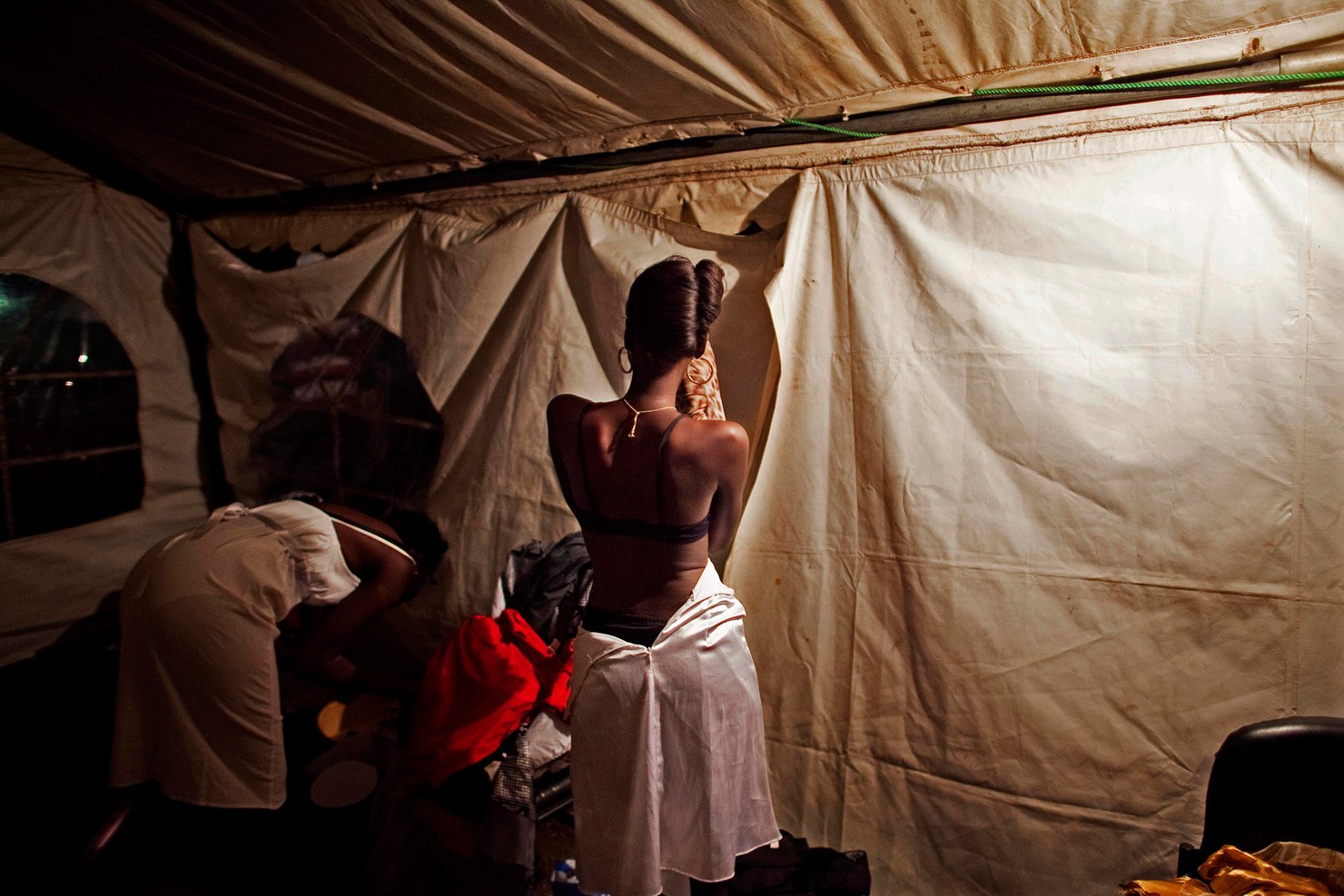
{“img”:”/wp-content/uploads/2015/10/Muller_05.jpg”}
It is true that I mainly shoot armed conflicts, epidemics and other disasters. However, I believe it is important to document things in a holistic manner. South Sudan was and remains a very troubled place but that’s not to say that there aren’t moments were those troubles seem far from people’s minds. People joke. People tease each other. People flirt. People gossip.
When I see reports, pictures or other documents that suggest things are one way or the other, I see them either as polemical or as objective-driven advocacy.
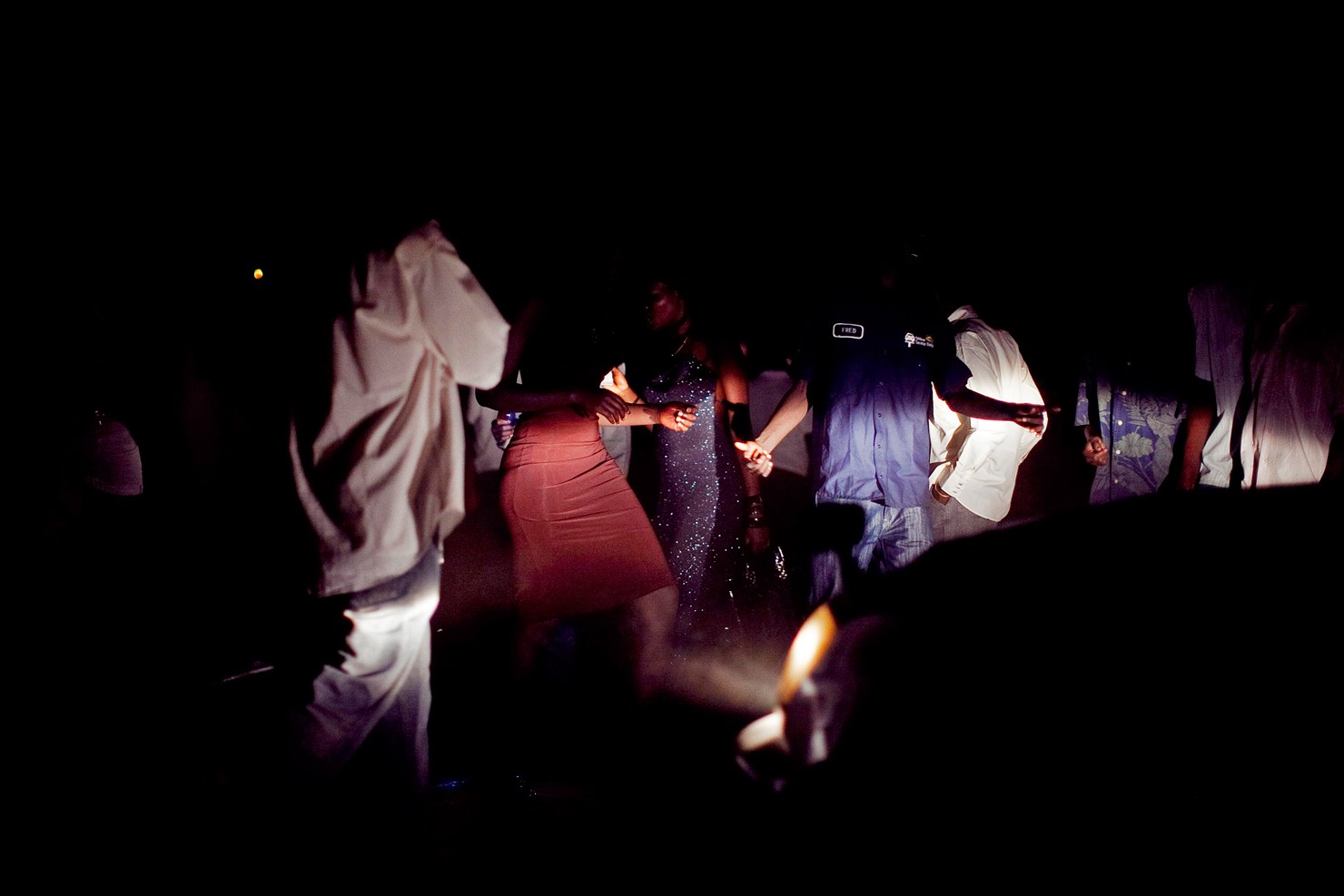
{“img”:”/wp-content/uploads/2015/10/Muller_06.jpg”}
{“img”:”/wp-content/uploads/2015/10/Muller_08.jpg”}
{“img”:”/wp-content/uploads/2015/10/Muller_09.jpg”}
At the time, I was interested in making a short series that contributed to my larger body of work on the experience of South Sudan’s independence. The Miss Malaika beauty pageant was interesting both because of its nationalist and sociological implications. I have not looked at these pictures for awhile and, to me, they feel distant. While I feel that the optimism for which this period was known may be exaggerated, there certainly was an air of change and excitement. Something big was underway. It’s disheartening to look back knowing that long anticipated state, in whose honor this pageant occurred, has essentially failed.
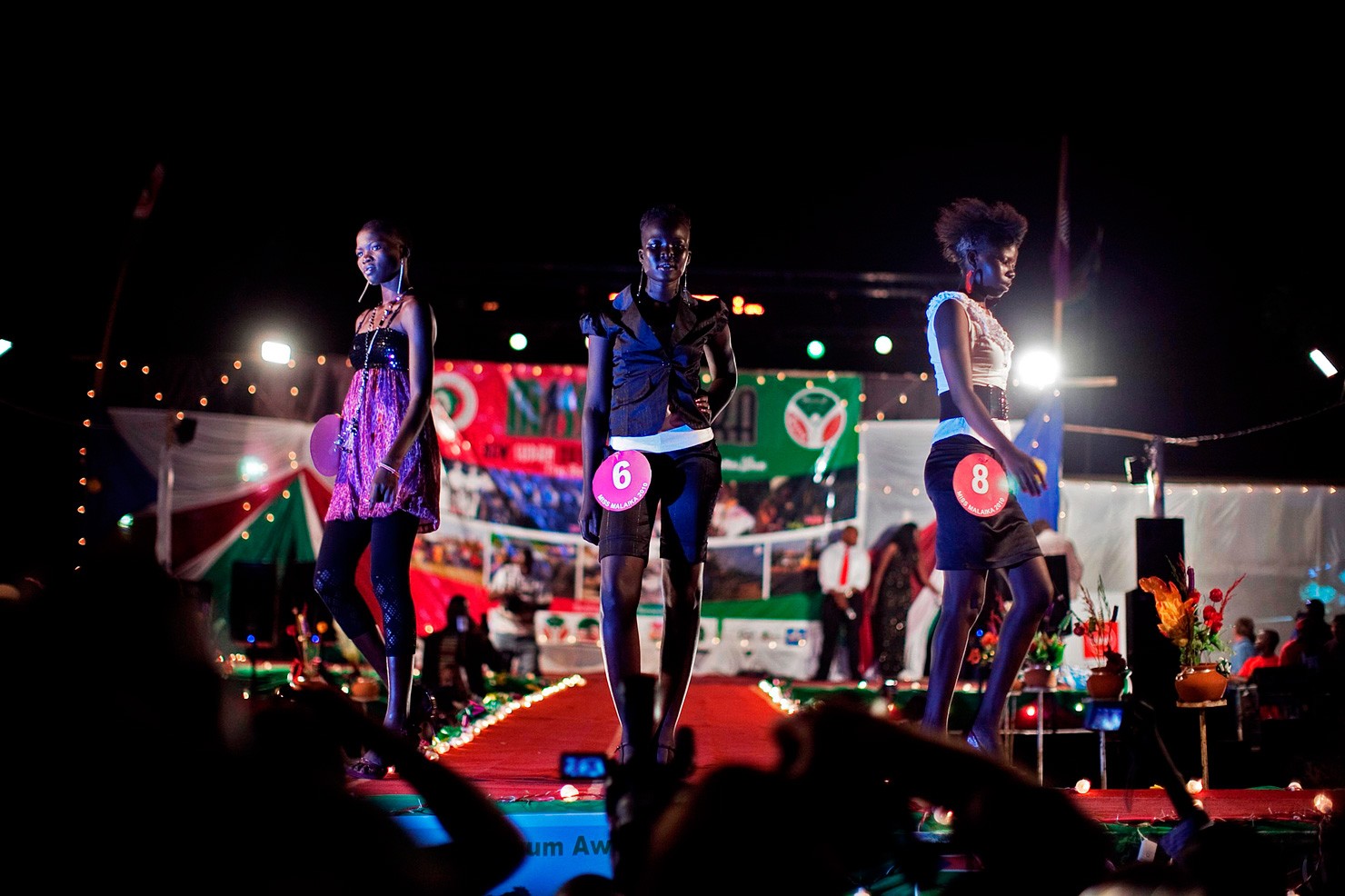
{“img”:”/wp-content/uploads/2015/10/Muller_11.jpg”}
New and best




